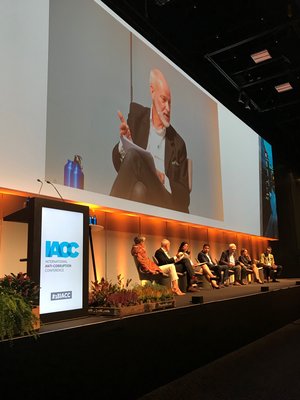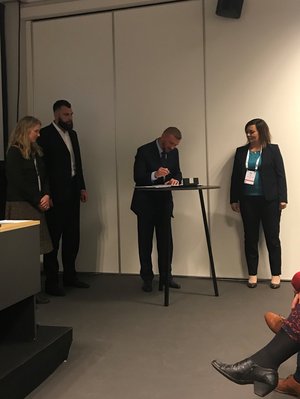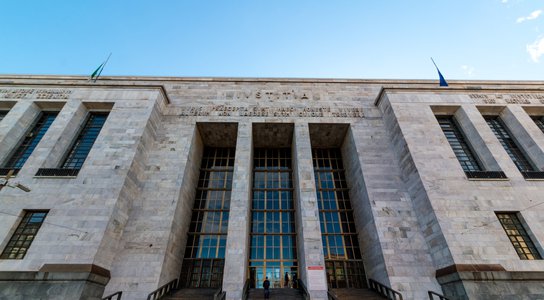The 18th International Anti-Corruption Conference in Copenhagen, Denmark attracted 1,500 anti-corruption activists, academics and policy-makers from all corners of the globe. The number one thing that drew them together? Hands on experience fighting the corrupt and other criminals.
From NGOs working tirelessly across the US, UK, Italy and Nigeria on the massive Shell-Eni corruption trial to exposing the slew of money laundering scandals in Brazil, Ukraine, and Latvia, everyone arrived with different perspectives, but it is without question that we leave with one shared learning: without collective action, the corrupt will continue to get away with their misdeeds.

Pictured: GW Director and Co-Founder Patrick Alley speaking at the IACC.
We know there is much work left to be done. During one plenary –which discussed the impacts of the Marikana mining massacre in South Africa –a participant reminded the crowd of the adage: a luta continua.
“People forget that the phrase is not just ‘a luta continua’. The entire phrase is ‘A luta continua; a vitória é certa’.”
The activist urged, “It means the struggle continues, victory is certain. But for us, victory is not so certain right now. We are facing serious threats to democracy and freedom all over the world. Unless we can overcome by working together, we will fail.”
Comments like this were frequent and exemplified the recurring need of collective action – across sectors, political party lines, and country borders.
For example, as Global Witness campaigner Naomi Hirst mentioned in her blog from the conference earlier this week, it’s true that progress is being made on the issue of criminals and the corrupt using anonymous companies to move, hide and spend their illicit money. Collecting beneficial ownership information – that is, information about the real owners of these companies – is moving towards becoming a global norm.
But as our analysis of the UK’s company register revealed, there is still a way to go before such transparency will truly deliver on its potential.
And beyond the UK, we have yet to see how the EU will interpret the 5th Anti-Money Laundering Directive’s requirements to establish public beneficial ownership registries, or how the UK’s Overseas Territories will respond to UK’s Sanctions and Anti-Money Laundering Act’s requirements to do the same.
Worse, the United States and other secrecy jurisdictions continue to falter on beneficial ownership or other transparency initiatives entirely.

Pictured: During the conference, the government of Ukraine agreed to start sharing its beneficial ownership data.
Big data and machine learning has helped some countries root out corruption at record levels. Unfortunately, the impact of these methods is piecemeal. Unless systems work congruently, the data can only tell us so much—like comparing apples to oranges.
Organizations such as Global Witness, Open Ownership, and The Open Government Partnership are striving to close this gap, but it is impossible alone.
To protect our hard fought wins, guard civic space, and defend all the liberties we hold dear, the position reached at the IACC is clear: Only if we start to march in lock step –presenting a united front against corruption –can we promote the peace and security we wish to see in the world.
This year’s conference has certainly marked unprecedented partnership between civil society, journalists, law enforcement, and the private sector. As we all pack up our bags to return home – to continue the fight – we take with us the reminder that collective action is what will bind our efforts together, and take us to victory – a world in which justice for all prevails and the corrupt and criminals are held to account.


